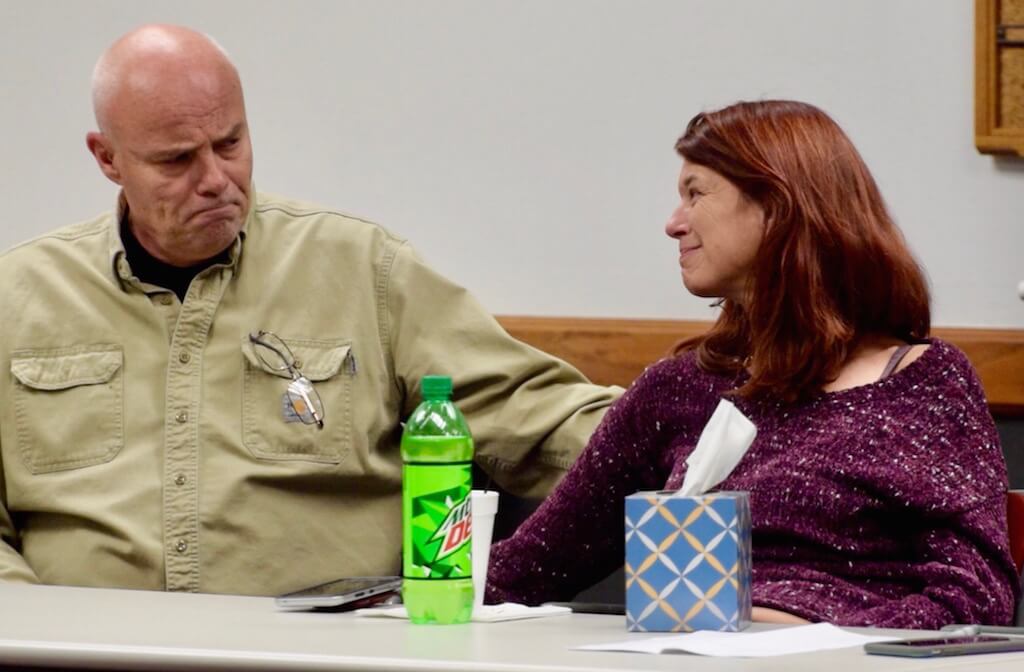
Editor’s note: This letter to readers went out Friday, Dec. 6. to our email subscribers.
Dear readers,
I started this letter to you in my head about a dozen times Tuesday while driving home from Rangely.
The evening before, the Independent and Rio Blanco Herald Times organized a forum there about our two newsrooms’ investigation into the shooting death of Daniel Pierce, a man with paranoid schizophrenia, by Rangely Police Lt. Roy Kinney a year ago next week. Jeff Roberts of the Colorado Freedom of Information Coalition participated in the community conversation, which he chronicled here.
“I wanted to tell you about the moment when Pierce’s widow, Debra – who had flown from Missouri and driven with me the five hours from Denver to Rangely – and I pulled up to Kinney’s home where I’d arranged for the two (pictured above) to meet before the forum.
“Wait, what do you say to a man who killed your husband?” she asked me, grabbing my arm anxiously. Kinney looked even more nervous, smoking on his front stoop waiting for our arrival. He walked cautiously toward the car. Debra got out and extended her hand and he started doing the same until he stopped himself, asking if he could hug her instead.
On that curb at dusk, the widow who had been estranged from her mentally ill husband embraced the longtime cop who lost his job over the shooting.
“I’m sorry,” he told her.
“So am I,” she said. “I’m sorry, so so sorry this happened to you.”
They spent an hour and a half sharing Marlboros, Mountain Dews and stories about the dead man that connected them. They talked about guilt and grief, about anger and shame, and about the days and weeks both have spent wishing they could hide under a rock.
[ad number=”1″]
The two sat next to each other at the forum, each crying when the other spoke. And both chose to stay after it ended, partly to share contact information, but mainly, as Debra put it, “because, as weird as this sounds, it’s a relief meeting the only other person who really gets it.”
Debra was lighter, more relaxed on our drive back to DIA Tuesday. She slept part of the way as I ran the previous day through my head. A part of me had dreaded the forum, feared that no one would come, that the conversation would be awkward and guarded. It had been none of those things. It was, instead, raw and honest and full of moments of grace.
When Debra woke, we drove in silence looking at the snow-covered mountains we were passing and the way the sun shimmered on the rivers. Then we turned the volume up, playing every version we could find of Leonard Cohen’s “Hallelujah,” from opera to punk.
As we approached the United drop-off at DIA, I told Debra that the best part of my job is journeys like these with people brave enough to share their stories.
We all have stories, she said, heavy ones.
“It’s not bravery. It’s luck. … Most of us don’t get the chance to let them out and stop carrying them alone.”



